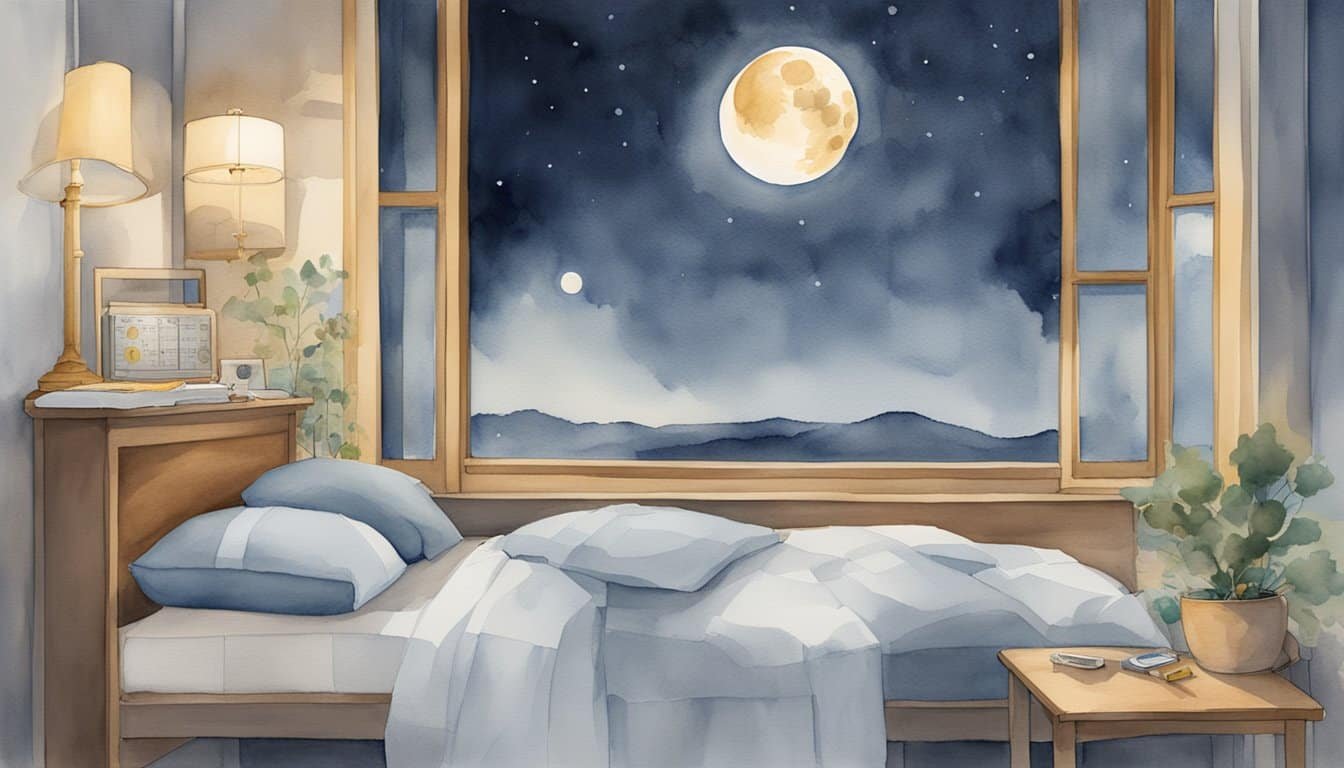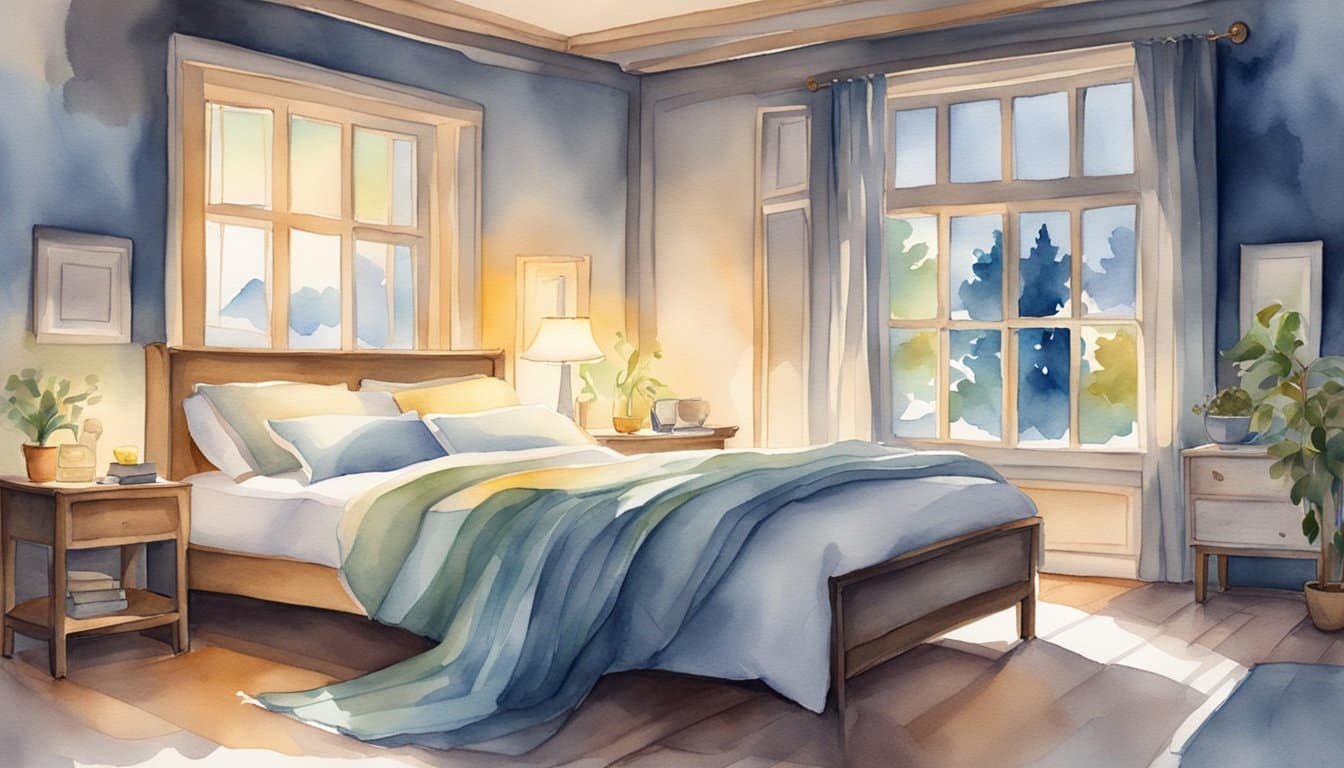Understanding the Lunar Influence on Sleep
It appears that tracking the moon could be as important as counting sheep when it comes to finding quality slumber. Insights from scientific studies begin to shed light on how lunar phases might play a role in our nightly rest.
Exploring the Link Between Full Moon and Insomnia
One might wonder if the full moon is more than just a bright orb in the night sky when it comes to its effects on sleep. Research suggests that during a full moon, individuals may experience a slight decrease in sleep quality and an increase in time to fall asleep. Although gravitational forces of lunar cycles were once thought to influence human behavior and physiology, it appears that light exposure, including that of moonlight, may perturb the production of melatonin, a hormone integral to sleep regulation.
Moon Phases and Their Effects on Sleep Patterns
Shifting from new moon to full moon, the lunar cycle waxes and wanes, and so may our sleep patterns. Some findings point to changes in sleep architecture, with various moon phases associated with alterations in sleep efficiency, duration, and timing. However, unlike direct exposure to artificial light or blue light affecting our circadian rhythms, the nuances of sleep disruptions linked with the lunar cycle still beckon further illumination. Adhering to good sleep hygiene and considering the usage of black-out curtains could be advantageous regardless of the moon’s phase.
Scientific Analysis of Lunar Effects on Human Rest

Ever felt restless during a full moon and blamed it on the lunar effect? Well, you might not be just imagining things. Let’s dive into the fascinating scientific explorations to understand how the moon might be pulling strings on our sleep.
Latest Research Findings on Sleep and the Lunar Cycle
The conversation around lunar cycles and sleep isn’t just folklore. A study featured in Current Biology found that the lunar cycle can indeed sway human sleep patterns. The investigation, conducted by the University of Basel, utilized 33 volunteers and observed changes in their sleep structure, brain activity during REM sleep, and other parameters. This study applied electroencephalogram (EEG) technology to uncover that, around the full moon, individuals displayed reduced brain activity associated with deep sleep and took longer to nod off. To further cement these findings, a separate Science Advances research corroborated that on nights of the full moon, people tended to sleep less.
Biological Mechanisms Behind Moon-influenced Sleep Disruption
So, what’s the science behind this lunar interference with our shut-eye? The biological mechanism that might explain these lunar effects on human rest isn’t entirely understood yet. However, some sleep researchers suspect the gravitational pull of the moon might exert a subtle influence on our brain’s regulation of sleep. Additionally, it’s no secret that the full moon can light up the night sky, which some researchers argue might have historically disrupted human rest. With the brain being such a sensitive organ, especially in terms of sleep, it’s plausible to think that even slight changes in environmental illumination could throw off our REM sleep, that crucial phase for health and restoration.
Practical Tips for Better Sleep During a Full Moon

Many report feeling restless or unable to doze off when the moon is at its brightest. The following strategies focus on optimizing sleep hygiene and environmental factors to enhance slumber during these luminous nights.
Improving Sleep Hygiene Amidst Lunar Disturbances
The impact of the moon phases on sleep isn’t fully understood, but one can incorporate sleep hygiene practices that may counteract this effect. Establishing a consistent sleep schedule with fixed bedtimes and wake-up times is key, even on weekends. One’s bedroom environment should be conducive to deep sleep: cool, quiet, and dark. Avoiding stimulants like caffeine in the afternoon can also help the body settle into its natural rest state more readily.
- Establish regular sleep and wake times.
- Create a pre-sleep ritual to wind down.
- Ensure the bedroom is dark and quiet.
- Limit caffeine consumption especially after noon.
Technological and Environmental Sleep Aids
Harnessing the power of technology and environment can play a significant role in combating full moon sleep disturbances. The use of black-out curtains can block out intrusive moonlight, thus mimicking the darkness of the new moon. Additionally, in an age where electricity and screens are ever-present, blue light filters on devices or wearing a sleep mask can provide an added layer of darkness. Embracing a holistic approach to wellness can support sleep quality regardless of lunar activity.
- Use black-out curtains or a sleep mask to eliminate moonlight.
- Consider blue light filters for screens used in the evening hours.
- Explore white noise machines or calming music to drown out environmental noise.
- Try aroma therapy or relaxation techniques to ease the mind.
By adopting these practical steps, one’s sleep may no longer ebb and flow with the lunar cycle, leading to more consistent and restful nights.

